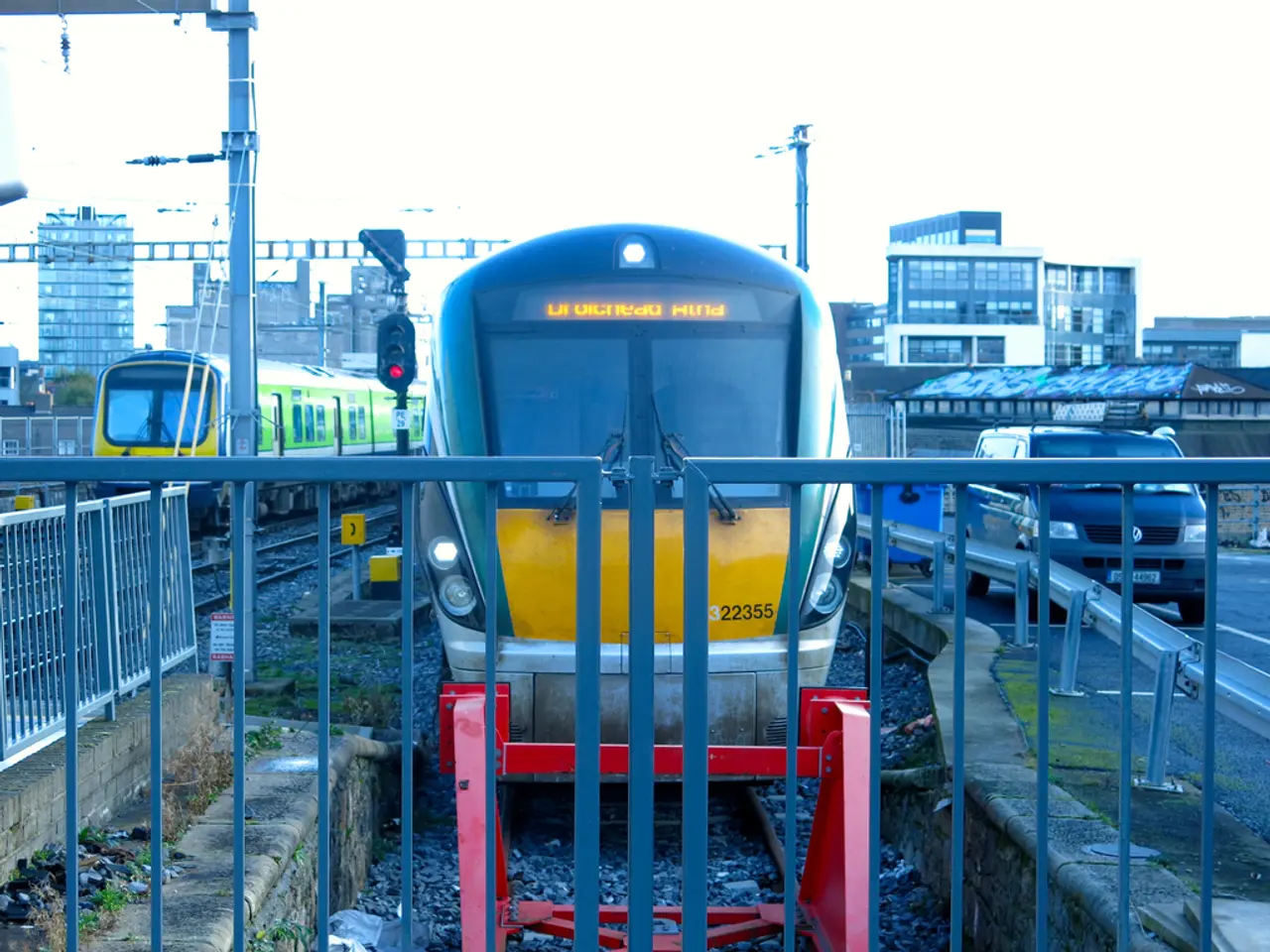Speedy Rail Service Proposed for Trás-os-Montes Region
Portugal Kicks Off Feasibility Studies for High-Speed Rail Link to Spain
The Portuguese Government has taken a significant step towards improving transportation between Portugal and Spain, with the initiation of feasibility studies for a potential high-speed rail link connecting Porto, Vila Real, Bragança, and the Spanish border. This project, a priority for the government for the coming years, marks the first time that the State has concretely initiated studies for this route after the region's lack of rail access for 33 years.
Infraestruturas de Portugal (IP), the government's infrastructure agency, is leading the studies. The goal is to enhance connectivity between northern Portugal and Spain, complementing other prioritized links like Lisbon-Vigo and Lisbon-Madrid.
The high-speed rail would serve the historically underserved Trás-os-Montes region, providing a much-needed boost to this vast peninsular area at the center of the country, as stated by Pedro Lima, president of the Intermunicipal Community of Terras de Trás-os-Montes.
The connection to the Spanish border envisions integration with Spanish rail networks around Sanábria and Zamora, enhancing cross-border rail traffic. This initiative fits into a broader strategic context, alongside other prioritized Portuguese high-speed rail links to cities in Spain such as Vigo, Madrid, Salamanca, and Seville.
Collaboration with the Northern Regional Coordination and Development Commission (CCDR-N) is underway to find the best technical and economic solutions for this project. The CCDR-N, committed to regional development, promoting cohesion among municipalities, and enhancing the value of the territory, will undertake public investment planning activities and prepare regional diagnostic studies for the development of infrastructure and public service networks.
The signing ceremony for the collaboration agreement for these feasibility studies took place in the auditorium of the Bragança Municipal Theater. The CCDR-N's focus on improving transportation connections, particularly rail, as a key factor in connectivity and competitiveness, aligns well with the objectives of this project.
No definitive construction timelines or funding commitments have been announced yet; the project remains in the feasibility assessment phase as of July 2025. However, the Minister of Infrastructure and Housing has emphasized that if the studies and design projects are not conducted, no work will be seen.
This development is a significant step forward in improving transportation infrastructure in Portugal and Spain, bridging the gap between the two countries and fostering closer ties.
[1] Government of Portugal Press Release, "Portuguese Government Initiates Feasibility Studies for High-Speed Rail Link to Spain," July 2025. [2] Infraestruturas de Portugal Press Release, "IP Leading Feasibility Studies for Potential High-Speed Rail Link to Spain," July 2025. [3] CCDR-N Press Release, "Collaboration Agreement Signed for Feasibility Studies of High-Speed Rail Link to Spain," July 2025.
- The high-speed rail link, if successful, is projected to not only connect Porto, Vila Real, Bragança, and the Spanish border, but also integrate with Spanish rail networks around Sanábria and Zamora, potentially boosting the finance industry by stimulating economic growth in the Trás-os-Montes region and strengthening cross-border transportation between Portugal and Spain.
- As part of a broader strategic context, the high-speed rail link is expected to complement other prioritized links like Lisbon-Vigo and Lisbon-Madrid, and additionally, connect to cities in Spain such as Vigo, Madrid, Salamanca, and Seville, enhancing Portugal's standing in the industry sector by positioning the country as a key transportation hub connecting Europe.




